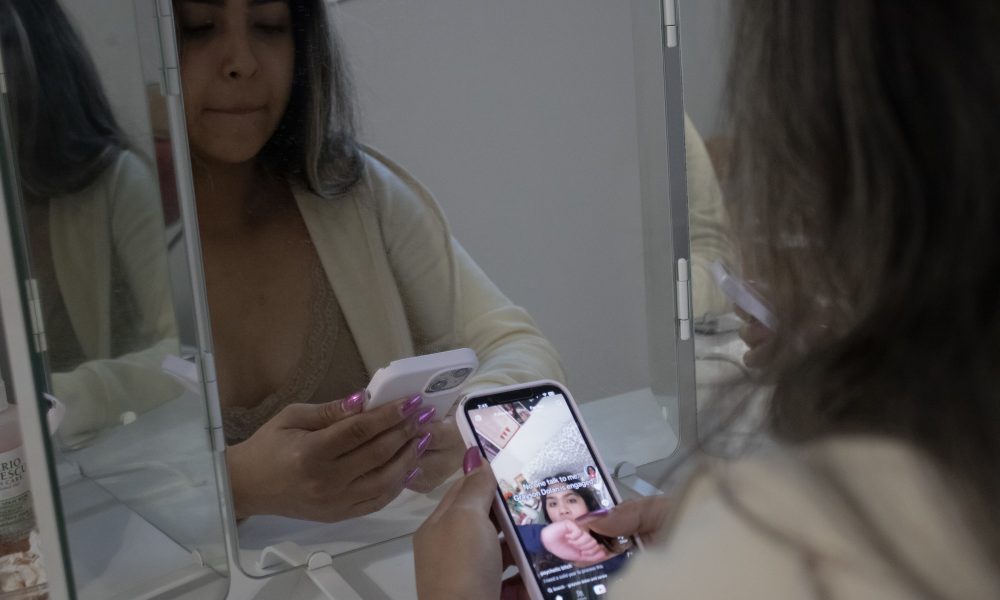The House passed legislation that could ban the popular social media app TikTok in the United States.
This legislation is the latest measure the U.S. government has taken against TikTok, ByteDance and the affiliated Chinese Communist Party.
In August 2020, former President Donald Trump issued an executive order to ban TikTok in the United States unless it was sold to an American company.
For me and many others my age, the urgency and attention that has been diverted towards this ban by the House, U.S. Senate and government is puzzling for multiple reasons.
There is a common belief, especially among TikTok users and creators, that the United States has far more pressing concerns than banning a social media app.
People are frustrated that they are focusing on banning TikTok instead of taking action to address income inequality, civil rights violations and other critical issues that directly impact the American people.
When the vote was first announced, I was conflicted. I had grown fond of the app and gathered tons of information over the past three years. My photos app alone still takes up multiple gigabytes on my phone; mostly because of the videos I have saved from TikTok over the years.
However, I am no stranger to the dangers of surrendering your data online.
Prior research I did on the rise and fall of Facebook for a high school project years ago showed that like TikTok, Facebook use to collect personal data and then illegally sell that data to third parties.
Those third parties then took the data and created personal profiles on these individuals to market everything imaginable. Physical products to political ideologies based on their psychology, who they were and their thought processes.
This practice falls under what is called “psychological warfare” which is illegal in the United States. That is why Facebook had to take and sell that data behind the backs of its users.
As a result, Facebook’s brand reputation went into the mud as most of the users faded out in favor of other social media platforms.
This is important to note because TikTok’s headquarters is located in Beijing, China, not the United States. There is no federal jurisdiction that they have to adhere to when collecting and selling data from U.S. citizens.
Its parent company, ByteDance, is under the jurisdiction of the Chinese Communist Party despite being a privately owned company.
ByteDance must still adhere to Chinese laws and regulations, which involve requirements for data storage, censorship and cooperation with government authorities. This means that psychological warfare is very much on the table.
I personally believe that the dangers posed by TikTok are valid and hold weight in our society. Being educated on the inner workings of social media and how it can influence people is imperative for everyone.
Foreign countries have used personal data accumulated from social media to invoke a form of psychological warfare on U.S. citizens and even interfere with United States elections in recent history.
This isn’t to say that foreign powers have infiltrated the United States and that people need to panic, but that being educated on the inner workings of social media and how it can influence people is imperative for everyone.
On the other hand, many people living in the U.S. currently make a living off of TikTok and have even put in years of work to establish themselves or their “brand.”
Should TikTok get banned, these people would have to find other work and lose everything they have spent years building unless they want to uproot their lives and leave the country.
The somewhat common consensus on the internet that the United States government is focusing on TikTok only to distract people from real problems doesn’t hold much weight after I completed my research since it is a matter of security and defending people from psychological warfare.
Despite that, many people still hinge on their livelihood on TikTok, just like many people use TikTok to get their news and entertainment.
I don’t think it’s fair to take that away from anyone, just like it isn’t fair to ask the United States government to allow the Chinese Communist Party to have free reign to do whatever they want with U.S. citizens’ personal information.
At the end of the day, both sides are technically “in the right,” even if everyone can’t win.
Sometimes there just isn’t a right answer to dilemmas both big and small and this is one of the greatest examples of that in today’s world.




